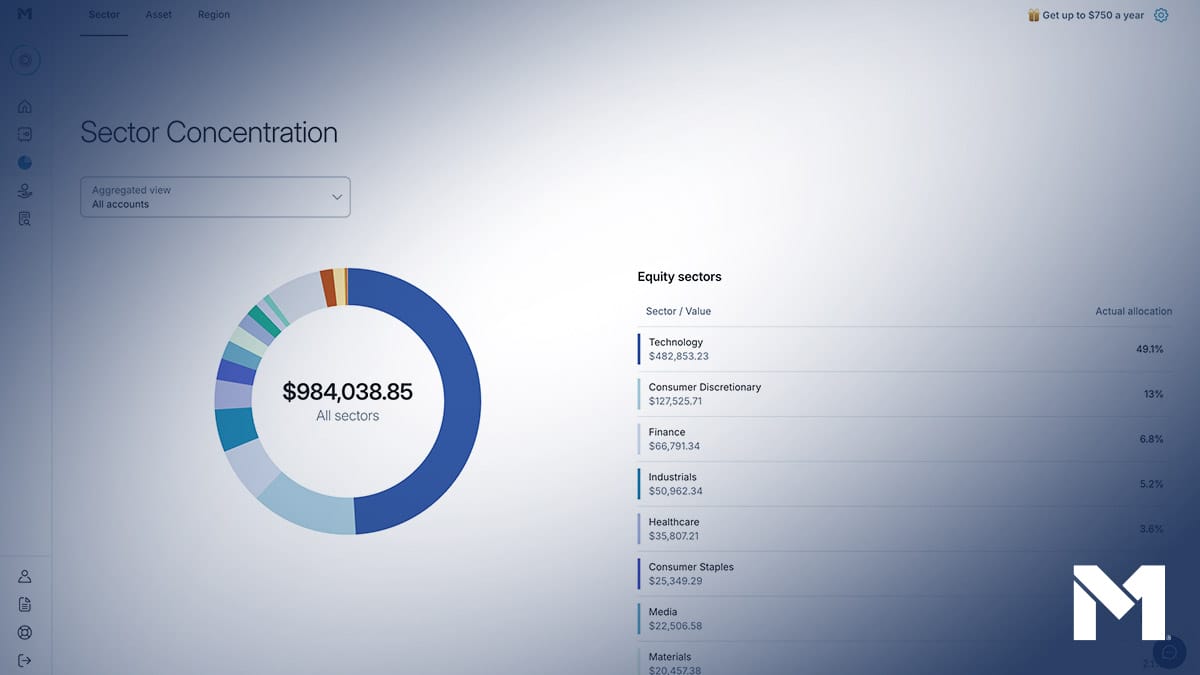Six finance things we’re thankful for in 2023

2023 has proven to be a fiscally frustrating year for many. Rising costs, high interest rates and an ever-looming recession have kept everyone on their toes waiting for doomsday. But despite the struggles, there are several things we can be thankful for as the holiday season approaches.
If there’s something we missed, tweet us @m1finance, we’d love to hear what you’re financially thankful for this year.
Turkey prices are falling
The delicious turkey dinner you’re salivating over could cost less this year.
According to the American Farm Bureau Federation, the average price for an eight- to 16-pound turkey in August 2023 was $1.27/lb. — or nearly 30% cheaper than last Thanksgiving season. Last year, turkey flocks were ravaged by a bird flu outbreak, which killed over 6 million turkeys and drove prices higher to $1.81/lb.
Saving money finally pays
As our parents always told us, saving money is the smart thing to do. Now, it’s also profitable. But it hasn’t been that way in recent years.
Between 2009 and 2021, the federal funds rate was near zero, incentivizing investors to put their money into assets like equities or real estate. Now, as the federal funds rate has been rising, investors can keep their cash in low-risk investments like Treasuries and potentially earn yield. Here’s how the federal funds rate and Treasuries have increased simultaneously.

Source: MacroMicro
In fact, Warren Buffett’s Berkshire Hathaway is currently holding onto its largest cash position ever of $157 billion, with the majority of it parked in short-term Treasuries. Short-term Treasuries are currently paying over 5%, but even at a flat 5% yield, his company could be potentially earning roughly $654 million per month.
Not a bad return on investment in what’s considered to be one of the safest asset classes available.
Inflation is showing positive slowdown
Fed Chair Jerome Powell should be enjoying his Thanksgiving dinner just a little bit more this year. Over the last two years, inflation has grown at a rate not seen since the 1980s. But now, it appears to be cooling off. The most recent Consumer Price Index released on Nov. 14th indicates that inflation is now at 3.2%, its lowest point since early 2021. And categories that hit consumers the hardest like food-at-home and electricity have slowed to 2.1% and 2.4%, respectively.

Source: Federal Reserve Bank of Cleveland
This positive news of inflation slowing on Tuesday sent equities markets surging, with the S&P 500 having its best day since April. However, the battle isn’t over just yet. The Federal Reserve’s goal is to get inflation down to 2%, which hasn’t been seen since the beginning of 2021.
Retirement contribution limits continue to increase
The IRS has released the 2024 contribution limits for investment accounts, giving investors the opportunity to put even more money to work. Annual contribution maximums are periodically raised, but no increase was issued for tax years 2019 through 2022. We can rejoice that in 2024 we can continue putting more money away for the future.
Each account may potentially offer tax benefits if you’re eligible, so be sure to select the best one(s) for your financial situation. Here are the accounts that have increased their contribution limits, and by how much:
401(k)
2023: $22,500 for those under 50 years old, $30,000 for those over 50
2024: $23,000 for those under 50 years old, $30,500 for those over 50
Traditional/Roth IRA
2023: $6,500 for those under 50 years old, $7,500 for those over 50
2024: $7,000 for those under 50 years old, $8,000 for those over 50
SIMPLE IRA
2023: $15,500 for those under 50 years old, $19,000 for those over 50
2024: $16,000 for those under 50 years old, $19,500 for those over 50
SEP IRA
2023: 25% of eligible employee compensation, up to $66,000
2024: 25% of eligible employee compensation, up to $68,000
Note that if you haven’t topped off your accounts yet for 2023, you still have some time to decide if this is the right path for you. For Traditional and Roth IRAs, you have until April 15th, 2024 (Tax Day), to meet your 2023 contribution maximums.
Unemployment rate remains low, and job openings remain elevated
One of the saving graces of the economic uncertainty has been a consistently low unemployment rate. Since January 2022, the unemployment rate has remained below 4% — reaching as low as 3.4% in April 2023. It’s now at 3.9%, but remains on par with pre-pandemic levels.

Source: Federal Reserve
Jobs are also plentiful with nonfarm openings at roughly 9.5 million. This is down from 12 million in March 2022, but still much higher than pre-pandemic levels. However, these openings remain heavily weighted in several industries like education and travel, while others like construction continue to face a “labor surplus,” according to U.S. Chamber of Commerce.
S&P 500 up, with potential tailwinds
The S&P 500, an index many investors follow for a pulse on the stock market, has performed quite well this year. Since Jan. 1, the S&P 500 is up over 17%. This is a great performance as the index historically returns 10% on a yearly basis.
And those investors may potentially be able to ride the holiday cheer along into 2024 as the fourth quarter has historically been the best for the index. The average return (dating back tosince 1957) in Q4 is 4%, with the next best being Q1 at 2%. However, always remember that past performance isn’t an indicator of future gains.
M1 self-clearing is complete!
Over the last several months, the M1 team has been hard at work converting from Apex to our own clearing platform. Now, we’re happy to say that our users with individual and joint margin accounts are now part of the self-clearing platform.
All other account types will remain with Apex, and we will be working to move those accounts to our self-clearing platform in the near future.
Hot take: Mac & cheese is the best Thanksgiving side, but that’s a debate for another time.
Enjoy your Thanksgiving holiday and copious hours of watching football.
M1 and its affiliates do not provide tax, legal, or accounting advice. This material has been prepared for informational purposes only. It is not intended to provide, and should not be relied on for, tax, legal or accounting advice. You should consult your own tax, legal, and accounting advisors before engaging in any transaction.
A rollover is only one of your options for your retirement account, please see IRS guidance about rollovers for additional details/considerations.
M1 is a technology company offering a range of financial products and services. “M1” refers to M1 Holdings Inc., and its wholly-owned, separate affiliates M1 Finance LLC, M1 Spend LLC, and M1 Digital LLC.
M1 newsletters reflect the opinions of only the authors who are associated persons of M1 and do not reflect the views of M1. They are for informational purposes only and are not a recommendation of an investment strategy or to buy or sell any security in any account. They are also not research reports and are not intended to serve as the basis for any investment decision. Prior to making any investment decision, you are encouraged to consult your personal investment, legal, and tax advisors. Any third-party information provided therein does not reflect the views of M1.
All investments involve risk including the loss of principal and past performance does not guarantee future results. Brokerage products and services offered by M1 Finance LLC, Member FINRA / SIPC.
© Copyright 2023 M1 Holdings Inc.
20231117-3238255-10286121
- Categories
- Invest



